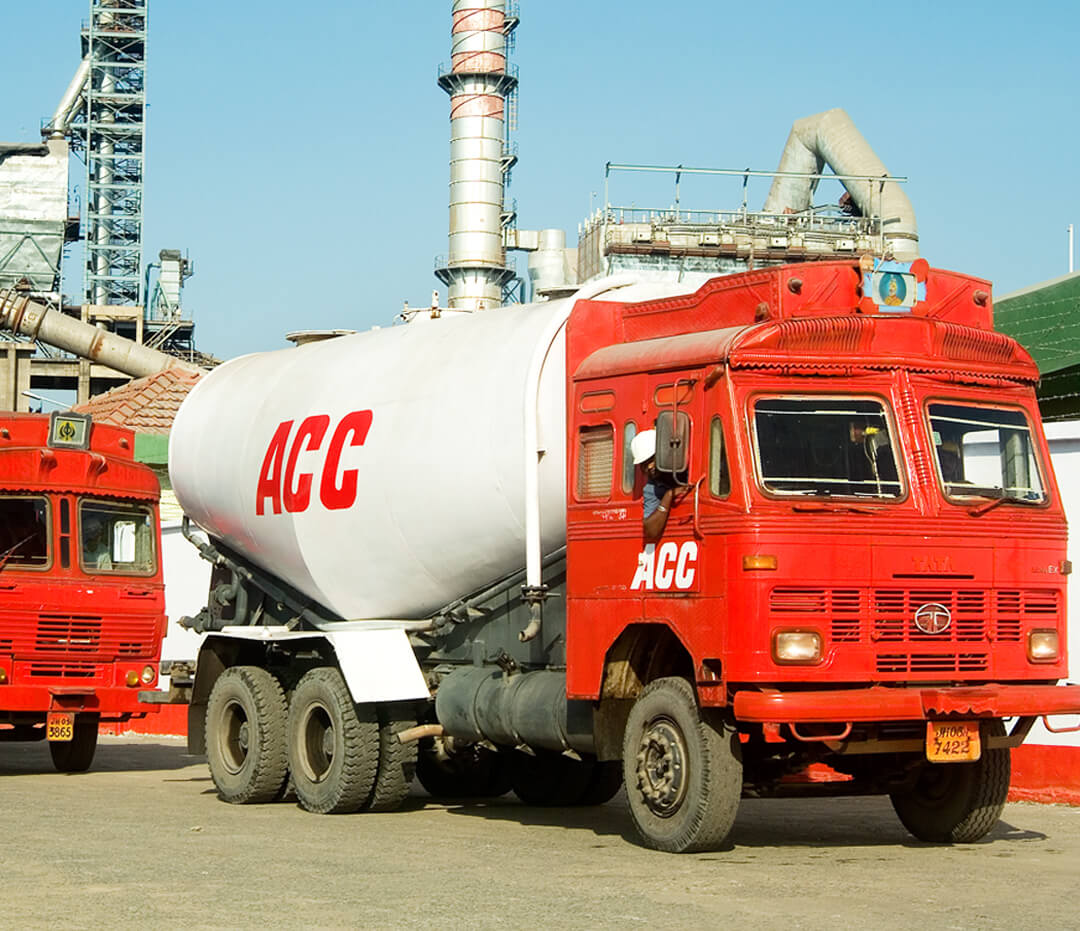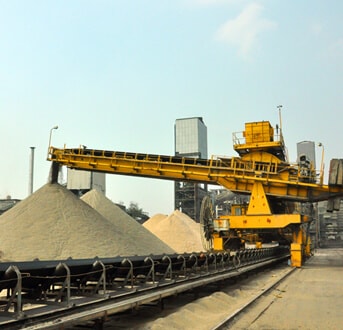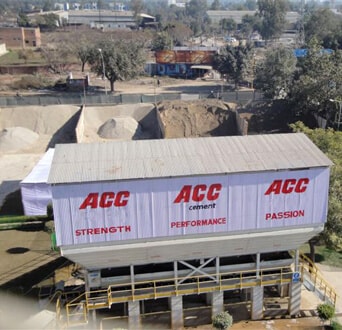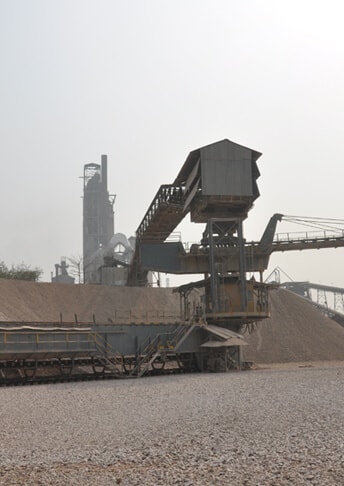
This is a special blended cement, produced by inter-grinding higher strength Ordinary Portland Cement clinker with high quality processed fly ash - based on norms set by the company's R&D division. This unique, value-added product has hydraulic binding properties not found in ordinary cements.
It is available in specially designed 50-kg bags.

In concrete made from ordinary cements, moisture reacts with calcium hydroxide in concrete to form calcium bicarbonate, which leaches out of the concrete, leaving pores that reduce its strength. ACC Fly-ash based PPC has ingredients which react with calcium hydroxide to form CSH gel, to provide additional strength, which actually makes the concrete grow in strength over the years. It also produces less heat of hydration and offers greater resistance to the attack of aggressive waters than normal Portland cement.

ACC Fly-ash based PPC easily replaces OPC and provides additional advantages for practically all types of construction applications - commercial, residential, bungalows, complexes, foundation, columns, beams, slabs and RCC jobs. It is especially recommended for mass concreting work, and where soil conditions and the prevailing environment take heavy toll of constructions made with ordinary cements.
ACC Fly-ash based PPC is made by intergrinding high strength clinker with specially processed flyash. This imparts a greater degree of fineness to ACC Fly-ash based PPC cement, improved workability properties while mixing, and makes concrete more corrosion resistant and impermeable. All of this makes for better long-term strength and improved corrosion resistance and therefore, greater life for your constructions. ACC Fly-ash based PPC is an eco-friendly cement
Due to its inherent characteristics, ACC Fly-ash based PPC makes very corrosion resistant concrete that is superior to concrete made with OPC. It is more impermeable to oxygen, CO2, chlorides, etc. Leaching of alkalis is reduced and the alkaline environment around steel is maintained.
This is a slag-based blended cement that imparts strength and durability to all structures. It is manufactured by blending and inter-grinding OPC clinker and granulated slag in suitable proportions as per our norms of consistent quality. PSC has many superior performance characteristics which give it certain extra advantages when compared to Ordinary Portland Cement
It is available in specially designed 50-kg bags.

Compared to OPC, ACC PSC imparts some important additional advantages
All these factors make for a strong, durable, and longer lasting construction. ACC PSC benefits the structure, protects the environment by reducing CO2 emissions and helps conserve energy. Which is why it is often referred to as an eco-friendly cement.
The Federation International de la Precontrainte (FIP) Guide to Good Practice for "concrete constructions in hot weather," states that if concrete is likely to be exposed to an environment of sulphate-bearing water or soil, it is preferable to use a proven type of blended cement containing ground granulated blastfurnace slag. Concrete made with ACC PSC has a higher density than concrete made with OPC, and hence it improves the durability of concrete structures.
It can, therefore, be used for all purposes where OPC or PPC is used